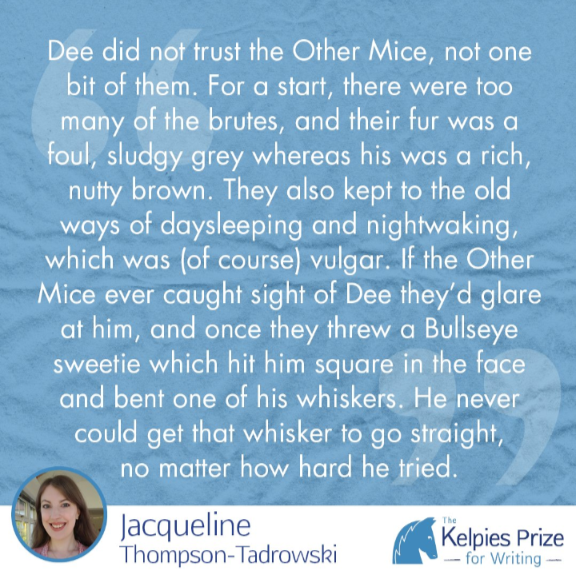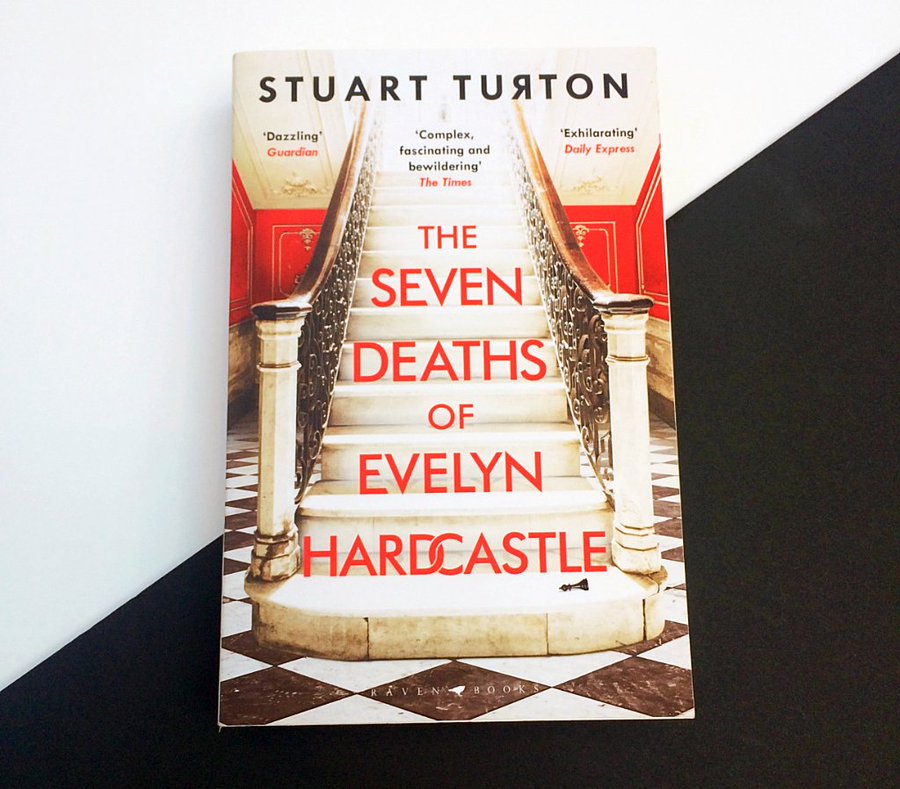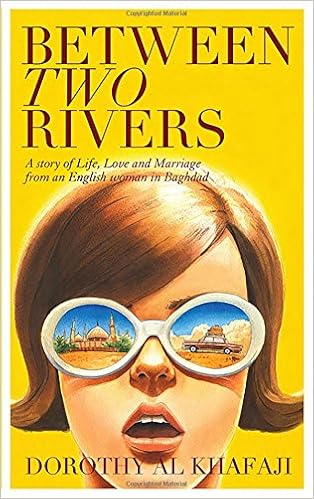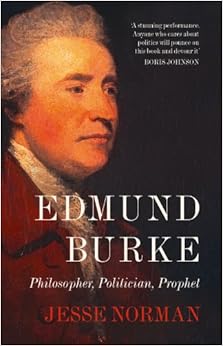My shortlist
1. Kirsty Gunn. The Big Music.
2. Liza Klaussmann. Tigers in Red Weather.
3. Fiona McGregor. Indelible Ink.

Arnold, Gaynor. After Such Kindness.
After Such Kindness is inspired by the true-life tale of Lewis Carroll’s troubling relationship with Alice Liddell. Set in the Victorian era, it relates the story of Oxford scholar/photographer John Jameson and his attraction to his friend’s little daughter Daisy. The character of Jameson is extremely well drawn, and it soon becomes clear that his interest in Daisy and little angelic girls in general is not sexual, no matter how shocking his behaviour might seem by our modern standards. When he photographs Daisy naked he looks upon her as you would a statue of a classical cherub; it’s revolting, but somehow not.
This ambiguity is brilliantly rendered by Arnold: whilst you believe in Jameson’s essential innocence, you can’t help feeling there might be more to what’s going on here than meets the eye. When Daisy is grown up and cannot have sex with her new husband (she finds him physically repulsive in this context, especially his chest hair) it becomes apparent that she has suffered some sexual trauma in her childhood that she has blocked from her memory. The obvious assumption is that Jameson has molested her, but when it is revealed who is in fact responsible (and just what exactly went on to make her this way) the results are astonishing.
My only issue with the book is that this sort of thing has been done before, by Arnold herself in her last book Girl in a Blue Dress (a fictionalized account of the marriage of Charles Dickens) and in other more expansive books like Michel Faber’s The Crimson Petal and the White (which covers a lot of the themes here, from the questionable Victorian treatment of children to repressed memories). It’s a delicious slice of Victoriana, very well written, insightful and full of well-handled flashbacks and suspense, but I’m not sure if it’s new or inventive enough to be shortlisted.

Boyt, Susie. The Small Hours.
I found the protagonist of this book, Harriet, irritating to begin with. She has a rapid, machine-gun style of speaking, uses plummy language and has an altogether ‘larger than life’ personality. However, as the condition of her mental state unfolds, the description of Harriet actually becomes spot-on. Boyt offers a fascinating insight into a troubled psyche so that we become deeply involved with Harriet, absolutely on her side and willing her to triumph. Harriet is living under the shadow of a family which has abused her psychologically and physically throughout her entire life. She has endured mental institutions, endless counselling sessions and the oppressive weight of her mother, brother and father, whose passive aggression is brilliantly wrought throughout the book. Despite how grim this sounds, the book is in fact rather joyful to read. Harriet buys a large house and sets up a nursery for five year olds, finding joy in domestic details, in baking and flower-arranging and other intricate, homely pursuits. The Small Hours is filled with beautiful descriptions of food, fashion and flowers, with many vivid descriptions of colours, smells and tastes rendering the book wonderfully evocative. The language used is, at some points, stunning. The narrative is well-structured and paced, its flash-backs deployed deftly and effectively. It’s short, sweet and a little slight, however, so not recommended for the shortlist.
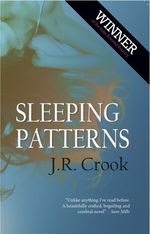
Crook, J. R. Sleeping Patterns.
At just 108 pages long, this book is split into 15 extremely brief sections, presented to the reader out-of-sequence, so that the first section we read is section 5, the second section 1, the third section 11, and so on. This is clearly meant to reflect the fragmented, dream-like quality of the narrative, and it’s an interesting idea. It calls the interplay between fiction and memory into question, as well as the relationship between writer and reader. Unfortunately, the result is at times confusing and frustrating. The plot is too thin to stretch and cover this experimental style and, ultimately, the characterisation is neglected because there is never enough space in each fleeting section to really get to grips with who each person is.
The disjointed nature also results in characters appearing to the reader for the first time half-way through their own narratives, and characters we are familiar with being introduced 5 sections after we have encountered them. The fleeting nature also makes it difficult to care about the characters or, indeed, to remember who they are. There is a lot of deliberate repetition throughout the narrative, which quickly becomes tiresome. For example: ‘…It was the way in which the flashing light of the tallest glass tower came through her windows at night. And it was the way in which he could not stop it …It was the way in which Christmas would soon pull her away. And it was the way in which that watchful arm would soon wrap again around her shoulders …It was the way in which things were left unsaid. …It was the way in which he… It was…’ (54). Note: the ellipses are the author’s own.
This is an interesting writing exercise, but not sustained or executed well enough for the book to be shortlisted.

Crow, Matthew. My Dearest Jonah.
This is comprised of a series of letters sent back and forth between Verity and Jonah, who are introduced through a pen-pal scheme but have in fact never met. The plot is intriguing. Jonah has just been released from a long imprisonment after a terrible crime committed in his youth. After his release he is stalked by the sinister Michael, who was involved in the crime and seems to have some sort of hold over Jonah. Verity, through an unfortunate series of events, becomes an exotic dancer in a seedy nightclub ‘The Iguana Den’ and becomes embroiled in criminal underworld activities that eventually lead to the murder of her best friend.
The plot is interesting, but Jonah’s and Verity’s style of speaking, or rather writing, to one another is often too formal and, at times, verges on grandiose. Take this section of a letter from Jonah to Verity, with whom he shares his deepest secrets and darkest thoughts: ‘I am truly sorry if you interpreted my previous missive as in any way accusatory. I can assure you this was not my intention and for any upset caused I apologise. That is not to say I entirely condone the recent tangent you seemed to have happened upon…’ (8). He is writing to his only confidante in the entire world but sounds like he is writing to his solicitor. There is also a fair amount of tell-and-don’t-show in Crow’s character descriptions. For example, his description of Jack: ‘Jack was a large man with few morals and a steady aim. He […] was considered the most volatile of the bunch…’ (102-3). A few lines of well-chosen dialogue/action could have revealed these character traits in a far smoother, demonstrative way. Strangely enough, I would have preferred this book if it wasn’t in letter-form but was instead presented simply as two interwoven narratives.

Dobbs, Sarah. Killing Daniel.
This story flits between classic it’s-grim-up-north Manchester and slick, exotic Tokyo, telling the story of two women, Fleur and Chinatsu, who were friends as girls but split apart by various circumstances.
There are some lovely observations scattered throughout the book, such as Chinatsu slipping a shoe onto a stocking-clad foot, which ‘still reminds her of that shell-to-ear sound’ (269). Dobbs gets inside the heads of her two protagonists, as well as Chinatsu’s disturbed husband Yugi, and their thoughts convey their various stories in a well-orchestrated sequence. There’s an elegance to the narrative, a pleasing fluidity that makes it extremely readable.
My trouble with the book is the rather worrying message I believe it sends to its readers. Fleur and Chinatsu are treated terribly by men throughout their lives. Fleur is sexually abused by her stepfather, who kills the only boy she ever loved. Her husband is cruel to her and they have hideous, rough and emotionless sex. Chinatsu was basically sold into marriage as a very young girl by her dominant father and is taught by her mother to be a silent and submissive wife, to think of sex as just another wifely duty that must be borne. Her husband is a murderer who hurts and kills prostitutes for sexual pleasure.
Yet in the end, though it is suggested by Dobbs that the two women save each other, it is actually men who save them, in the form of Fleur’s new partner, Nick, and Chinatsu’s new partner, Tao. I think it would have been so much more empowering and satisfying if the narrative had ended with Fleur and Chinatsu taking control of their lives on their own terms without the aid of men. It is also not totally clear why the two women continue to share a connection, and the moments where they recall one another feel slightly forced. Likewise, the reason why Yugi starts to find torture and death sexually arousing as a child is never fully explored but merely suggested, which leaves his motivations as a character unresolved.
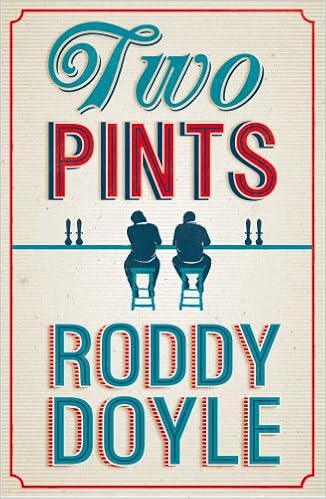
Doyle, Roddy. Two Pints.
I read this book in a lunch hour. It’s very short and very funny, just 89 pages of two men chewing the fat in a pub in Dublin over the course of a year, taking in everything from the euro crisis to the Queen’s visit. The dialogue is completely authentic and genuinely laugh-out-loud funny, the men’s dead-pan humour and extremely coarse language making a whole range of political issues accessible, thought-provoking and, above all, extremely human. The humour isn’t at all ‘safe’. A sample exchange between the two men:
- They met outside the boozer a few weeks after the smokin’ ban kicked in. And John arrived soon after.
- That’s kind o’ nice.
- There now.
- They still together?
- Actually – he died. The husband.
- That’s rough.
- She was pregnant as well. A girl. Know wha’ they called her?
- Wha’?
- Cancer.
- Fuck off now. I’m not listenin’ to yeh.
- A tribute to his memory.
- Fuck off.
- D’yeh want to know the surname?
- No.
- Ward.
- Cancer Ward?
- A lovely kid. A breath of fresh air.
- Fuck off. (10-11)
It’s deliciously wicked stuff, but in my opinion it’s altogether too brief and light to be shortlisted.

Flanery, Patrick. Absolution.
Absolution tells the story of Clare Wald, renowned South African author and critic, as she is interviewed by young American scholar Sam Leroux, who is writing Clare’s biography. Apartheid casts its long shadow over the narrative as Clare – rather cagily and unwillingly – talks to Sam about her past, and speaks internally to her absent daughter Laura. She hides as much from Sam as she divulges, and Sam does exactly the same with Clare. It soon becomes clear that Sam’s past is entangled with Clare’s, as well as Laura’s. Whilst Clare fought against the censorship imposed by the South African government during Apartheid, and seems politically left of field, Laura seems to have embroiled herself in nationalist activities, with all the secrecy, undercover operations and bomb detonations this entails.
The narrative is multi-layered, with some accounts stemming first-hand from Sam, some first-hand from Clare, some in the third person, and some as flashbacks of the same incident told from the perspective of different characters, which often vary greatly in content. For this reason, we are never quite sure who to trust, just as many people living in South Africa at the time of Apartheid would not have known who to trust. The final line of the book, uttered by Clare, referring to Sam, is: ‘I do not trust him, and never shall’ (385). This ambiguity and uncertainty that runs throughout the narrative is deftly handled by Flanery. There are some moments of real suspense, such as when Clare is fantasising that her daughter Laura was captured by authorities for her nationalist activities and caged by them, with the cage hung from a cliff face so that the heat of the sun and the wash and sting of the salt water will torture and slowly kill her. When Clare’s house is invaded in the night by a masked group of men it is genuinely terrifying.
What has prevented me from shortlisting this book is that, because of all the interwoven sections and the deliberate uncertainty of each account, added to the suspense, I expected a really dazzling conclusion which gathers together all of these things in a surprising and satisfying way. I felt that the book didn’t quite pull this off, ending with more of a whimper than a bang, but it is still a terrific book, informative, powerful and moving.

Gunn, Kirsty. The Big Music.
This book is unlike anything I’ve encountered before; fresh, inventive and totally unique. Part family narrative, part historical account of the Highlands and the pipe music born from them, part musical composition, it’s a work of fiction presented by Gunn as a collection of papers gathered together as part of a work of research, complete with impressively extensive footnotes and appendices. Despite the scholarly nature of this, the narrative – though it is full of deeply compelling plot lines – is written to a rhythm more than anything else, with certain phrases repeated throughout the book and certain themes returned to again and again. It’s difficult to describe how a book can be written to the rhythms and patterns of Piobaireachd (Highland bagpipe music), but this is precisely what Gunn achieves.
Set in the landscape of the Scottish Highlands and centering round ‘The Grey House’, The Big Music begins with the house’s aged owner, John Sutherland, stealing a baby away across the hills so that he might compose a piece of pipe music from the experience. Everything is experienced here by John in terms of music, from the baby’s cry, to the perceived horror of what he has done, to the skylarks, their ‘little High “E” notes striking through the light’ (9). This last remark is accompanied by a footnote explaining that ‘E’ is known as the ‘echoing’ note in the bagpipe scale, just one example of how the beautifully poetic details of the book are paired together with informative, scholarly information.
The themes which resonate throughout the book include loneliness, leaving and returning, mothers and their children, fathers and sons, and the importance of domestic life. The way in which all the characters seem to leave the house in their youth – to study, to work, to have families – but always return is paralleled with the Highland Clearances (another theme referred to throughout the book): ‘So they may have lived in Nova Scotia or New Zealand or somewhere far away, on the other side of the world, yet they remained here amongst the hills.’ (53). The refrain ‘I’ll not be back!’, uttered by John when he first left the house and the dominance of his oppressive piper father, is heard again and again throughout the narrative, highlighting the fact that John did come back, as does his own estranged son Callum.
There is an intense loneliness to John, who has deliberately isolated himself from everyone around him, and he feels this keenly as he approaches death: ‘For what else is there but to hear the sound of the past coming up behind you as you walk towards the end? Only love.’ (177). There are two single mothers in the book; John’s old lover Margaret, who has a daughter out of wedlock, and the daughter herself, Helen, who is the mother of the baby John steals in the beginning. Margaret gains strength from her physical intimacy with John, reflecting: ‘That kind of strength. It only comes from a bed.’ (32). Again, the importance of intimacy and companionship is highlighted.
We are given access to John’s memories of his mother, who as a young glamorous woman was whisked away to the Grey House only to discover that her husband – John’s father – ‘was a silent kind of man, and frightening, she discovered after their first night together in the bed.’ (258). John himself ‘longed to escape that man’s musical and physical dominance.’ (207). His mother, however, is maternal and tender, and he remembers her ‘lovely sharp and flowery scent right there at her neck when he puts his arms around her and she lifts him up.’ (118). Later, when he is grown, John embraces his now tiny mother and feels she is ‘like a stalk, like a little branch, but something of the blossom about her still.’ (120). This is just one example of the delicate but powerful observations of love and intimacy made by Gunn throughout the narrative.
Women are a dominant force throughout the book, their lullabies referred to as ‘soft songs’ (188), their stories referred to as ‘quietly told’ (197), with ‘strength coming from them but no power’ (197). When John’s mother gives birth to him within the house she thinks, as the women take the baby from her to be cleaned: ‘Just give him to me now. I could lick him clean.’ (259). This is a brilliantly primal maternal reaction, rendered perfectly by Gunn. It’s always gratifying when a book contains as many intriguing and memorable female characters as it does male.
All these fragments of narrative relating the love, pain and secrets shared by a family, of historical information, of accounts from different points of view, of footnotes and appendices (and so much more besides), form together to create a unified work of immense intelligence and originality. The impressive scale of The Big Music, set alongside its startling newness, makes it a worthy contender for the prize and I highly recommend it for the shortlist.

Jacobson, Howard. Zoo Time.
Zoo Time is narrated by a grumpy, cynical old Jewish writer (ahem) called Guy Ableman, who fancies his vivacious wife Vanessa’s alluring mother Poppy. Mother and daughter are inseparable and Guy moons about after them being grumpy and cynical and rather lecherous. It’s an unquestionably well-written book, covering a range of universal themes including the ageing process, disappointment, unfulfilled ambitions, the burden of family ties and the quest to write a great novel. It’s just that the narrator is so deeply unlikeable. He is an intellectual snob of the first order and describes gay men, women and sexual relations in a nauseating manner. He has a gorgeous, clever wife and a successful career but refuses to be happy with his lot. He is bitter, cynical and snide.
Whilst this is deliberate on Jacobson’s part, it makes it difficult to tune into the book’s humour. I had a sneaking suspicion that a lot of the intellectual snobbery and ‘it’s political correctness gone mad’-type statements were coming straight from Jacobson’s mouth, unfiltered through Guy Ableman, and were prompting readers to respond with a knowing smile rather than repulsion, which is what I felt. For example, when Guy has been told his books aren’t selling he muses: ‘None was suitable for the three-for-two. None featured a vampire. None was about the Tudors. None could be marketed as a follow-up to The Girl Who Ate Her Own Placenta.’ (27). He is against social media and the right of non-intellectuals to swap opinions: ‘If you’re going to blame anything you should be blaming myBlank and shitFace and whatever else was persuading the unRead to believe everybody had a right to an opinion.’ (27-8). He truly believes that writing great novels is ‘a dying profession’ (31).
I think we’re meant to feel triumphant that Guy’s wife, after she leaves him, writes a great book herself, but she is also such a detestable character by this point that I was willing her to fail. It’s a generally unkind and unpleasant book and, deliberate or not, this made it a tiresome read for me. I believe that reading and learning and sharing should be totally democratic. OK, the Twilight books aren’t ‘great literature’, but they’ve fired the imagination of a great many readers who might never have felt this way about reading. Hilary Mantel might write about the Tudors but she is an exceptional writer. Zoo Time feels like eating a big batch of sour grapes.

Klaussman, Liza. Tigers in Red Weather.
This wonderfully atmospheric, intelligent book has elements of Siri Hustvedt’s What I Loved, Lionel Shriver’s We Need to Talk About Kevin, Ellen Feldman’s Next to Love, Ian McEwan’s Atonement and Richard Yates’s Revolutionary Road, but it’s so unique in itself that it’s hard to liken it to any one thing. It tells the story of Nick and her cousin Helen and the different paths their lives lead them down, paths largely dictated by the men they marry. Set in America from the end of WWII through to the sixties, we see the ways in which the two women’s lives are shaped by who they choose to marry and have children with, as well as where their husbands decide to take them. Later, we see Helen’s son Ed and Nick’s daughter Daisy forming a friendship and making a gruesome discovery in their childhood one summer which has repercussions that will ripple through the years to follow.
From the way Helena is manipulated by her shady, con-man husband (he essentially takes her money and turns her into a drug-addict, even prostituting her out to some Hollywood bigwig at one point), to Nick’s war-haunted, sexually repressed husband Hughes, the two women are trapped in uniquely unhappy marriages, producing offspring who are clearly deeply affected by their parents breakdowns in communication. Told from five perspectives – Nick’s, Daisy’s, Helena’s, Hughes’s and Ed’s – the narrative ranges from an account of an awkward adolescent girl’s burgeoning sexuality through to the sinister, disturbed psyche of Ed, a truly chilling (but incredibly complex) character. Nick’s narrative in particular stands out as a triumphant piece of writing, her wasted sensuality and misplaced sexual power a particularly beguiling part a book full of secrets and discoveries.
Tigers in Red Weather combines a ‘literary’ quality of writing with a tense, skilfully crafted and suspenseful plot. It is full of glamour and sensual, evocative details, details which help to weave a tale of fidelity, betrayal and despair with a light yet lasting touch. This is an extremely sophisticated first book, and I highly recommend it for the shortlist.

McGregor, Fiona. Indelible Ink.
I read the blurb of this and ignorantly assumed it was a bit of ‘chick lit’ (hideous expression), a story about a recently divorced, middle-aged woman with empty nest syndrome who decides to go a bit ‘wild’ and get lots of tattoos. This actually is, in a nut-shell, what the book is about, but it’s so much more than that. This is a book about human nature and the human condition, and whilst it is largely domestic in its setting, it is truly epic in its ambitions. Set in modern-day Sydney, it offers a snap-shot into the lives of Marie King and her grown-up children. Marie, after a lifetime of submitting herself to the role of affluent wife, mother and housekeeper, finds herself with actual, real freedom and sets about having some fun. She joins the dating scene, drinks like a fish and gets more and more tattoos.
Her increasingly alarmed children dislike this new side to their mother, especially since each has problems of her/his own. Career-woman Blanche has a husband she doesn’t feel any passion for and a baby on the way that she’s not sure she wants. Leon is homosexual in a still homophobic society, tied to his mother in a touching but also troublingly intimate way. Clark is divorced, with an increasingly obese little daughter with whom he has a strained relationship, and his career is going nowhere. When Marie becomes seriously ill with stomach cancer, her self-absorbed children begin to squabble over inheritance and matters of real-estate. Marie continues to get tattoos and strikes up a friendship with her tattooist, Rhys, and a man she meets in her care-home, Brian, people with whom she would never have mixed prior to her divorce.
The ageing process, death, the plight of women, the body, sickness, freedom, autonomy, creativity, passion, sex, motherhood, parental bonds, career woes, failed ambitions, the class system, homophobia… in terms of what the book covers, the list goes on and on. Never preachy, never up on its soap-box, never trying to offer up any morals, Indelible Ink made me look at the world afresh, and though Marie is over twice my age and lives continents away, I felt I was completely inside her head. I felt, in fact, that I got inside the head of every character, despite how different from me they all are, so skilled is McGregor’s characterisation. The language is beautiful, the landscape and interiors perfectly rendered through economically deployed descriptions, and the plot is extremely moving (its resolution thoroughly satisfying). I would certainly recommend this for the shortlist.
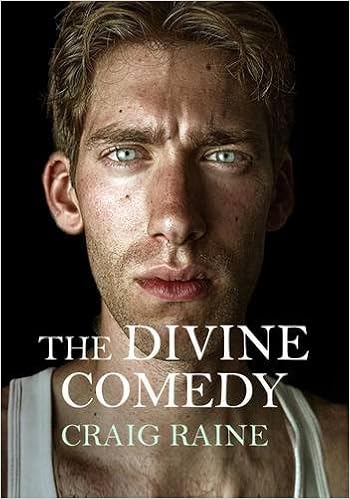
Raine, Craig. The Divine Comedy.
Raine’s poetic eye for detail and invention is apparent throughout The Divine Comedy. Whether he’s referring to margaritas with ‘a crushed necklace of salt on the rim of the glasses’ (129) or describing the tip of the penis as having a ‘goldfish mouth’ (3), his metaphors can be beautiful, funny and surprising. However, this book is offered up to readers not as poetry but as a novel and it is on these grounds that The Divine Comedy falls down. Just as I felt drawn into the narrative sections of the book I was pulled out of them in order to listen to Raine philosophising on some topic – invariably penises – usually involving an anecdote relating to one of his many, many celebrity friends. Then, just as I was beginning to relish these titbits I was pulled out of them and dropped back into another fragmentary narrative. The stories contained here are more like Polaroid shots into people’s lives, but they aren’t sustained long enough to create an overarching, unified feel (although, if you’re as obsessed with penis sizes as Raine is – he is particularly keen to discuss the penis lengths of famous writers such as Hemingway, Fitzgerald and Eliot – then this is the book for you).
Raine makes numerous sweeping generalisations about sex, women and the female body that made me want to hurl the book across the room. For example, statements like: ‘Women never ask to be wanked off. They ask to be wanked.’ (60). I don’t know a single woman who would make that particular request in quite those particular words. He also contradicts many of his own statements. At one point he writes that female genitalia: ‘differs from even the crudest pornography’ (45) which seems a pretty feminist, right-on thing to say. He then later writes a description of sex which is so pornographic it sounds as if it was written by a porn-obsessed teenage boy, referring to a man ejaculating on a woman, the first spurt of semen ‘too high for her to lick’ (109). It’s little wonder this book was recently short-listed for the Bad Sex Award. It deserved that award. It does not deserve this award.
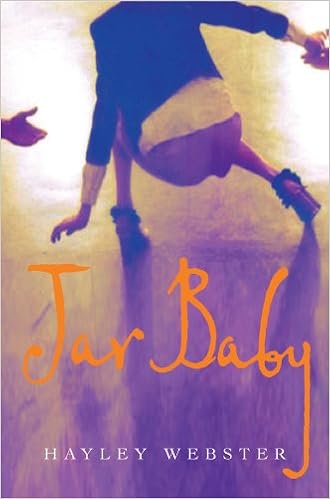
Webster, Hayley. Jar Baby.
I was drawn into this plot from pretty much the first chapter. It’s gripping and suspenseful, but it’s also the quality of the language that is impressive. Whether referring to tins of tomatoes as canopic jars or a dress as a ‘violet Miss Jean Brodie Dress’, Webster’s imagery is fresh, evocative and inventive. The sea-side landscape is wrought beautifully, as are the high-fashion outfits crafted by the protagonist’s fashion designer uncle. The dialogue feels perfectly natural, the characters well-drawn, and the central motif of the baby in the jar is at once horrific and consistently compelling. The section in which Diana, the protagonist, recalls a section of her childhood in which she spent a whole week without leaving her bedroom, not even to eat or drink or got to the toilet, then eventually foraging about the house and garden by night, gorging on bizarre combinations of food without speaking to another living soul for six weeks, is truly stunning. It is a brilliant evocation of a neglected child’s thought process and imagination.
My problem is with the whole idea of the protagonist’s eventual quest to discover who her parents are and discovering they’re two people she’s known all along. This whole ‘Luke, I am your father’ thing that you find in so many novels: it just isn’t a satisfying resolution to what is, up until this point, a complex and intriguing plot. I felt disappointed by the final section of the book and for this reason I wouldn’t recommend it for the shortlist, though I believe Webster is an extremely accomplished writer, and one to look out for.




